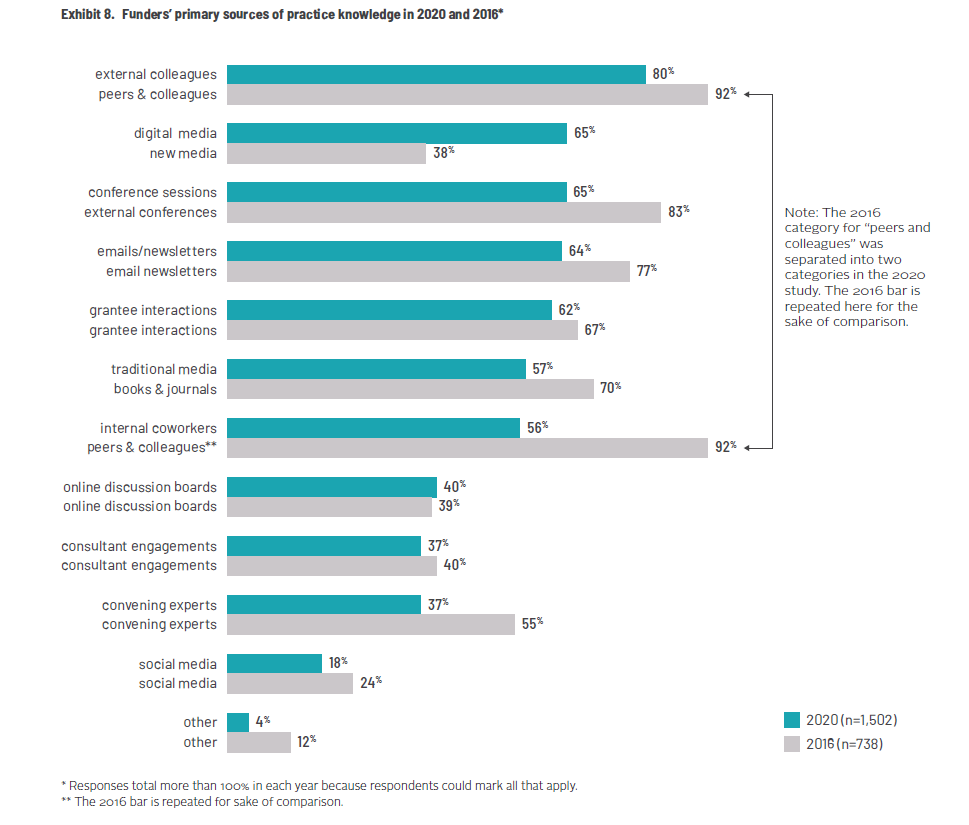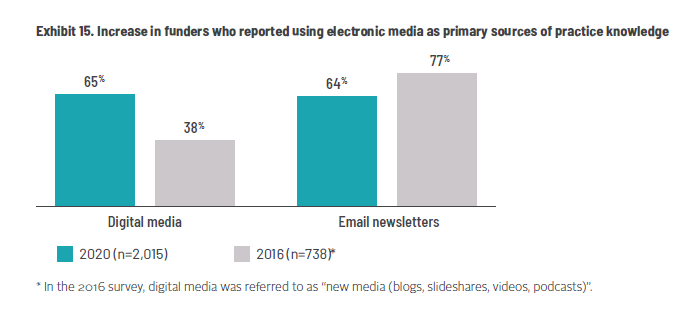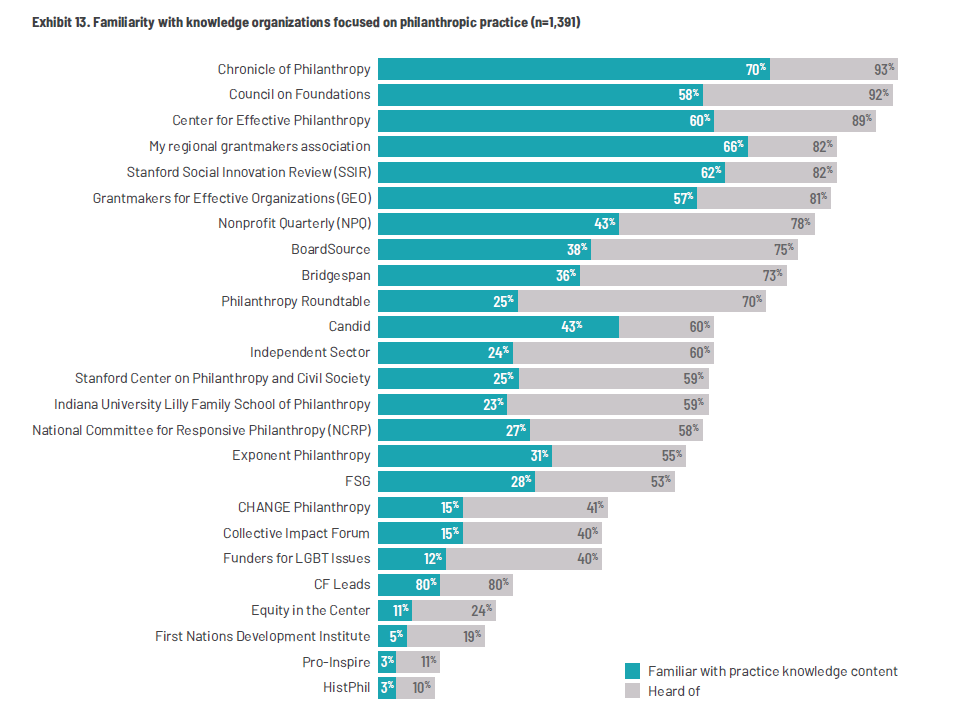Soaring interest in diversity, equity, and inclusion: How funders seek and use knowledge

Nearly two-thirds of funders reported seeking knowledge about DEI, more than any other topic, which is not surprising given increased public and philanthropic attention to racial justice. While interest in this topic was high across respondent groups, some respondents to the survey—namely female and BIPOC foundation executives, staff from larger foundations, and staff from community and independent foundations—were more likely to state interest in DEI than other respondents. Evaluation staff members were also more likely to report interest in DEI than people in other staff roles; 90% of evaluation officers selected DEI.
So, what specifically about DEI do funders want to know? In interviews, funders discussed a broad range of topics that reflect different stages of the “DEI journey,” from those having initial conversations internally, to those rethinking different organizational practices, to those trying to make their grantmaking more equitable and increase grantee voice and power.
Some interviewed funders note that one challenge in addressing DEI at foundations is that existing information about DEI in philanthropic practice lacks depth, with a need for more nuance regarding how funders can support equity. They also emphasized the necessity of community voice and lived experience to inform DEI efforts.
In 2020, 89% of respondents reported seeking knowledge from peers, with 80% relying on external colleagues, and 56% reaching out to internal coworkers. This finding is consistent with 2016, when 92% of respondents reported peers and colleagues as a main source of knowledge about the practice of philanthropy.
There are several reasons for seeking out knowledge from peers. For one, peers’ experiences are relevant because they understand foundations’ inner workings. Also, trusted peers who are further along at developing a philanthropic practice make logical resources for funders wanting to make similar changes. In interviews, funders also underscored the value of peers for quick access to information, which has been especially important in the face of so many new challenges and decisions during the past year, and spoke of trusting people and sources with which they had past experience. One funder said, “[The source is] someone that I know and have worked with in the past whose judgment I trust and who knows me and my work well enough to curate for me.” Interviewees also referred to the external reputation of the source. For DEI practice knowledge, community voice, and lived experience are key indicators of quality for funders.
The survey asked respondents to select any of 12 main knowledge sources, and funders selected an average of six—including peers and five others. Nearly two-thirds of funders report relying on digital media, conference sessions, newsletters, and grantee interactions.
Further, in interviews, funders noted potential limitations of overly relying on peers. One commented, “To the extent that these peers and colleagues don’t represent a diverse set of opinions and perspectives, that would be a problem.” Funders acknowledged the importance of proactively seeking diverse sources and perspectives on philanthropic practice to go deeper on a topic and gain different perspectives.
In-person conferences were the second source after peers in 2016. In a year when a global pandemic led to the cancellation of large in-person events, in-person conferences were cited by far fewer respondents in 2020 than in the earlier study. But funders continue to express positive views of conferences, noting in interviews the benefit of bringing practice knowledge to life through multiple perspectives and real-time interaction.








